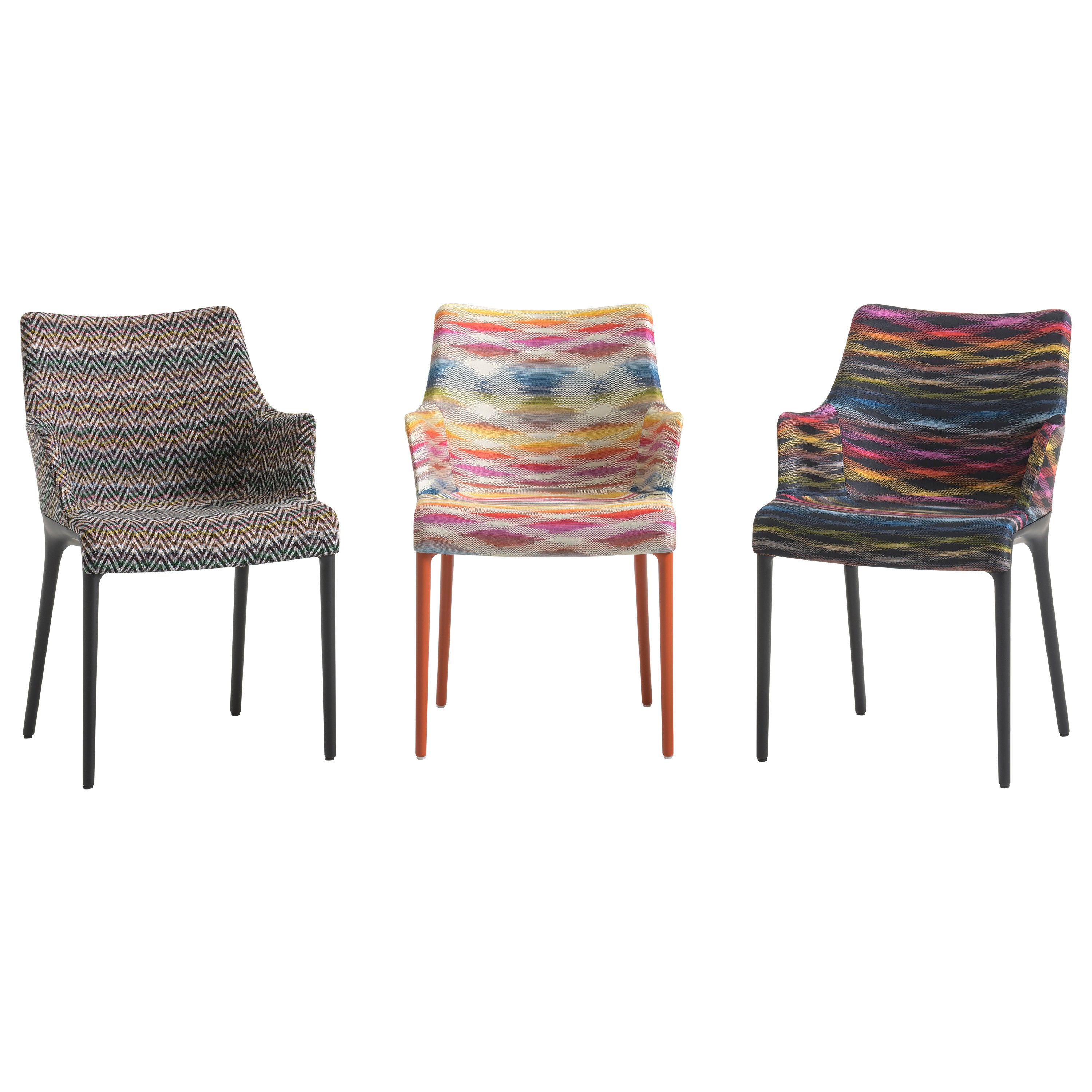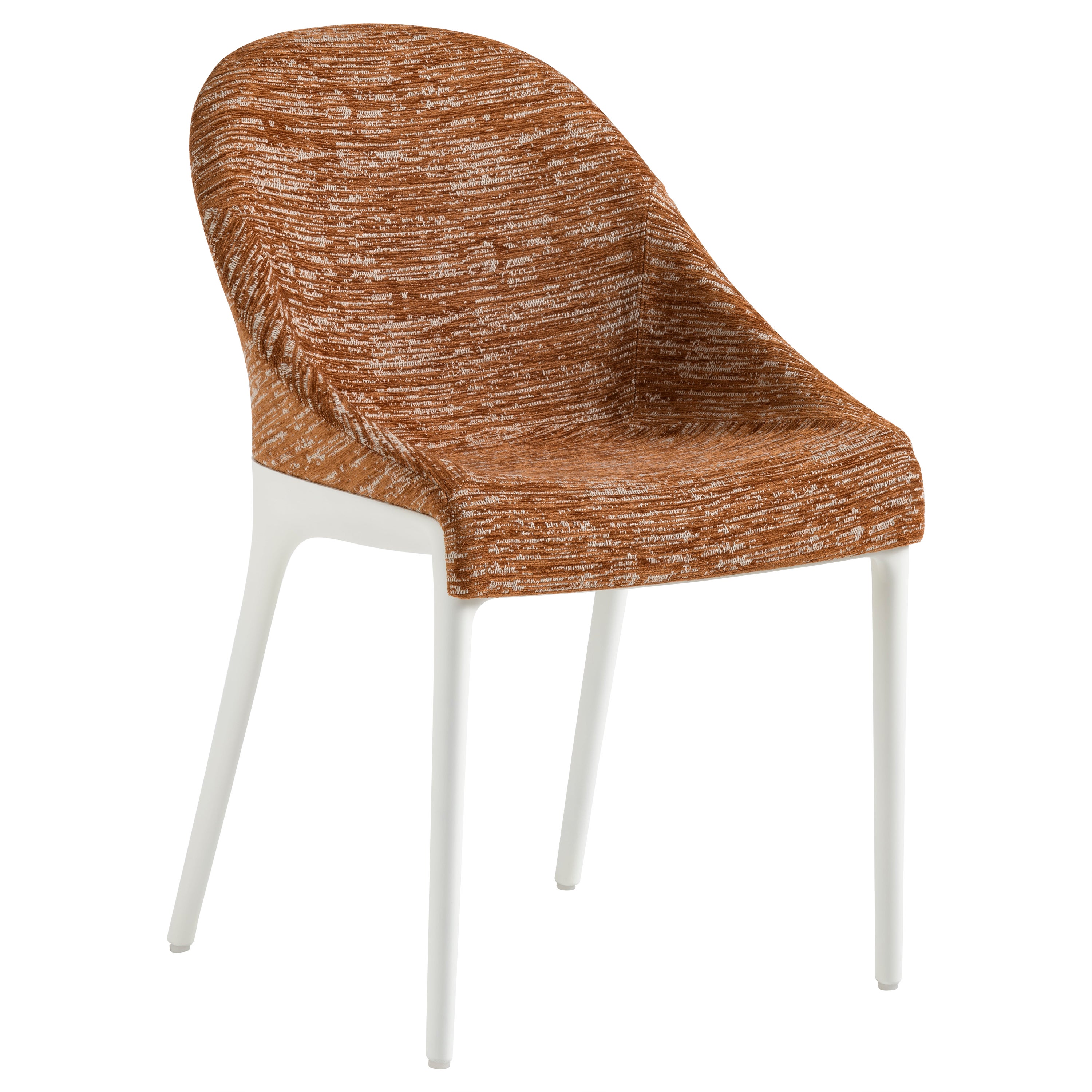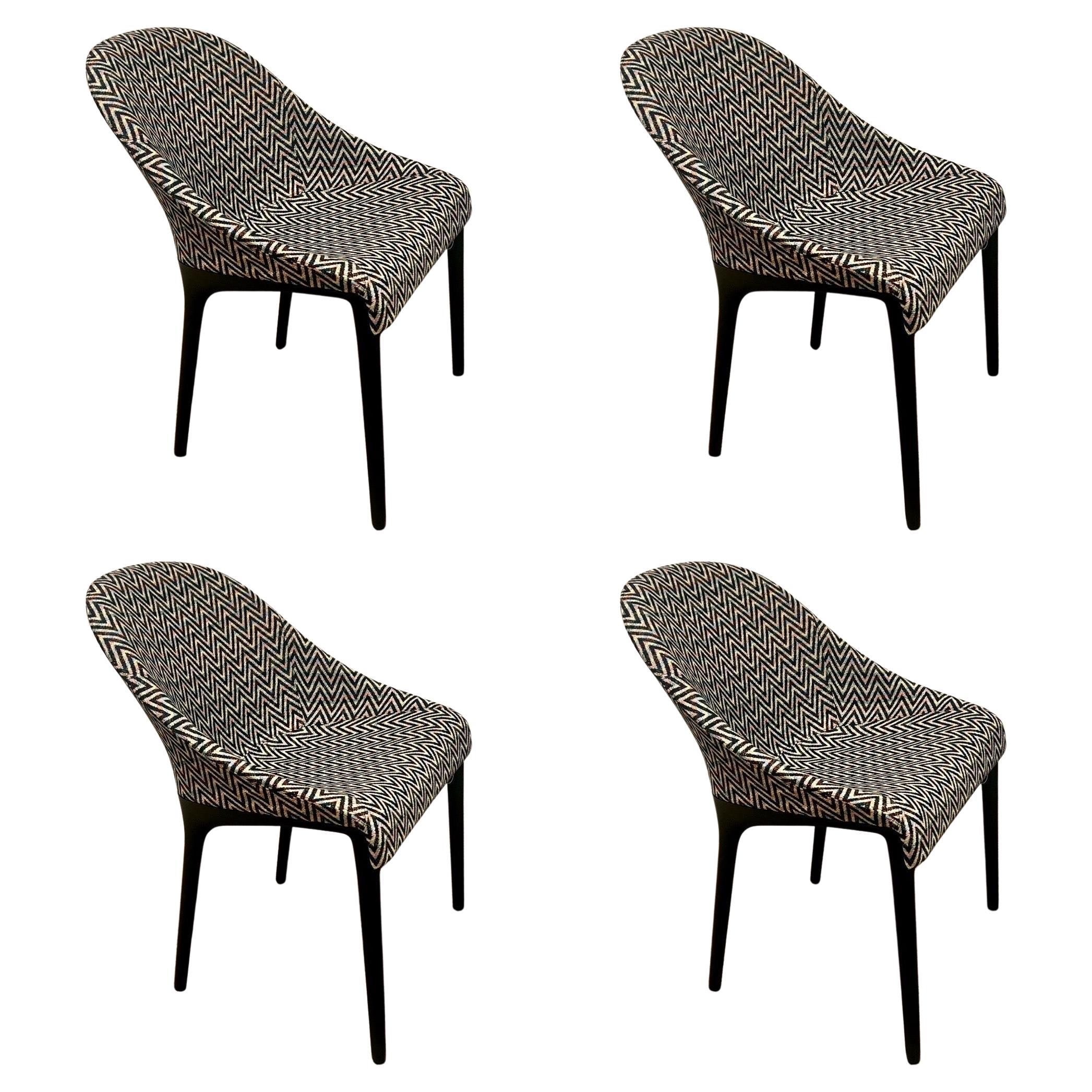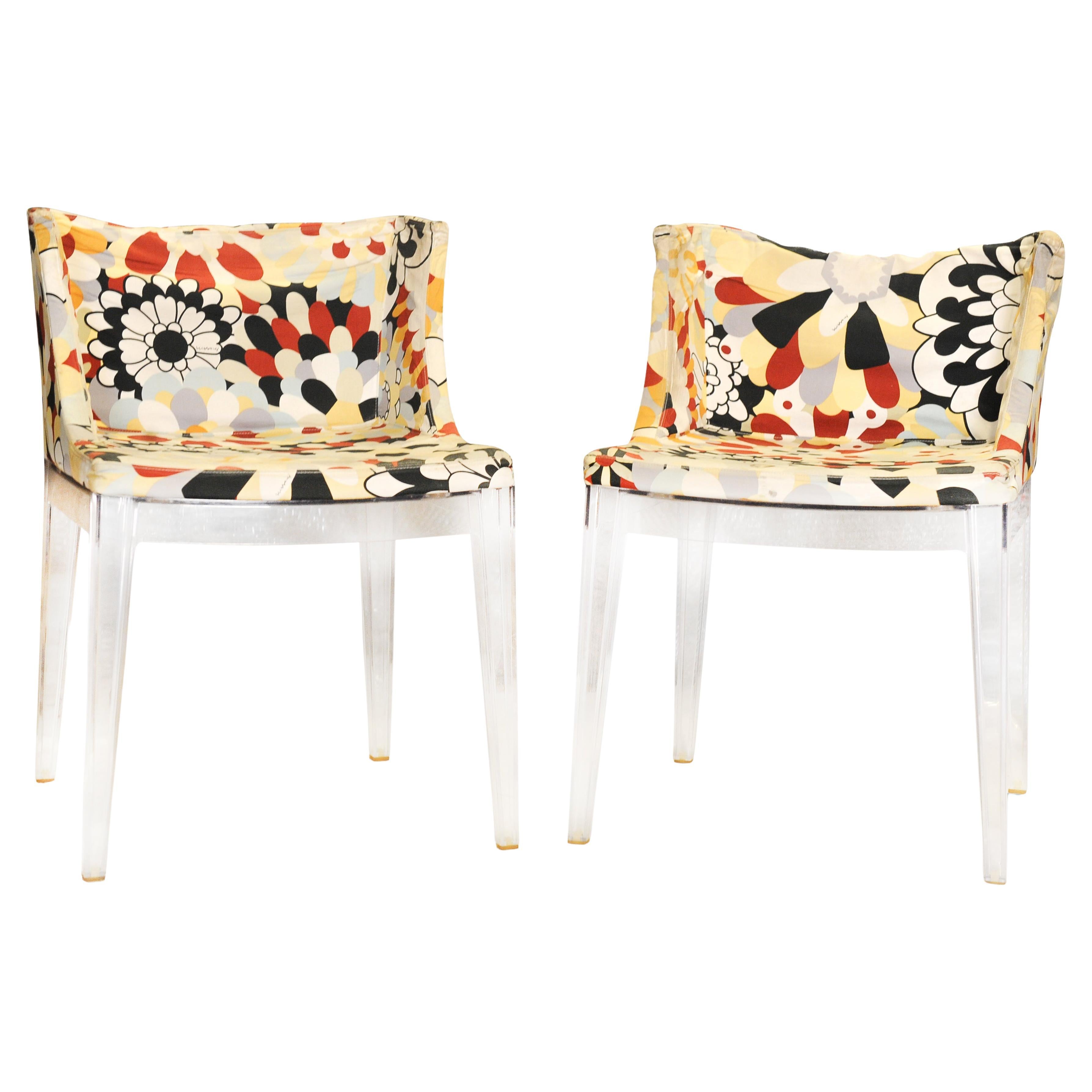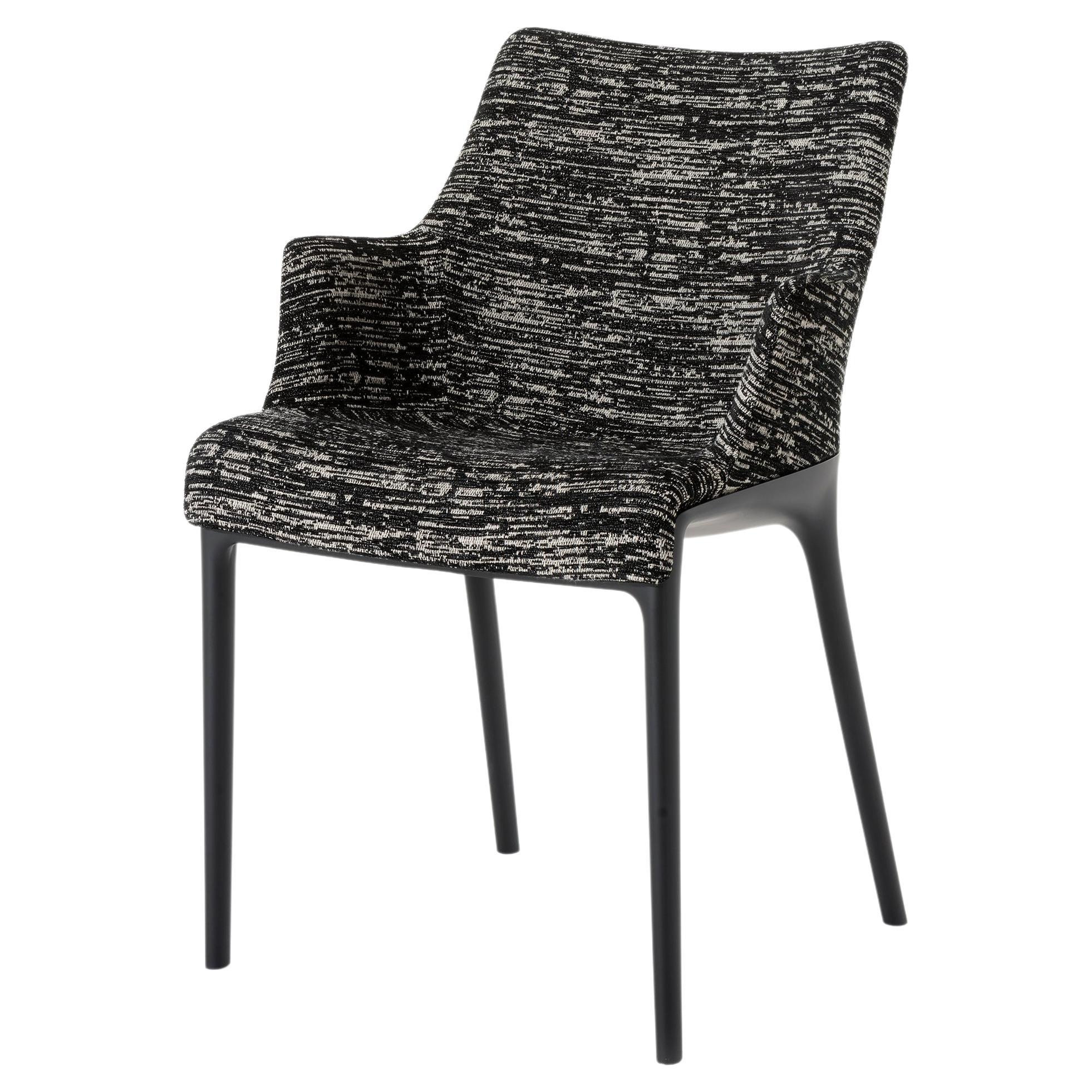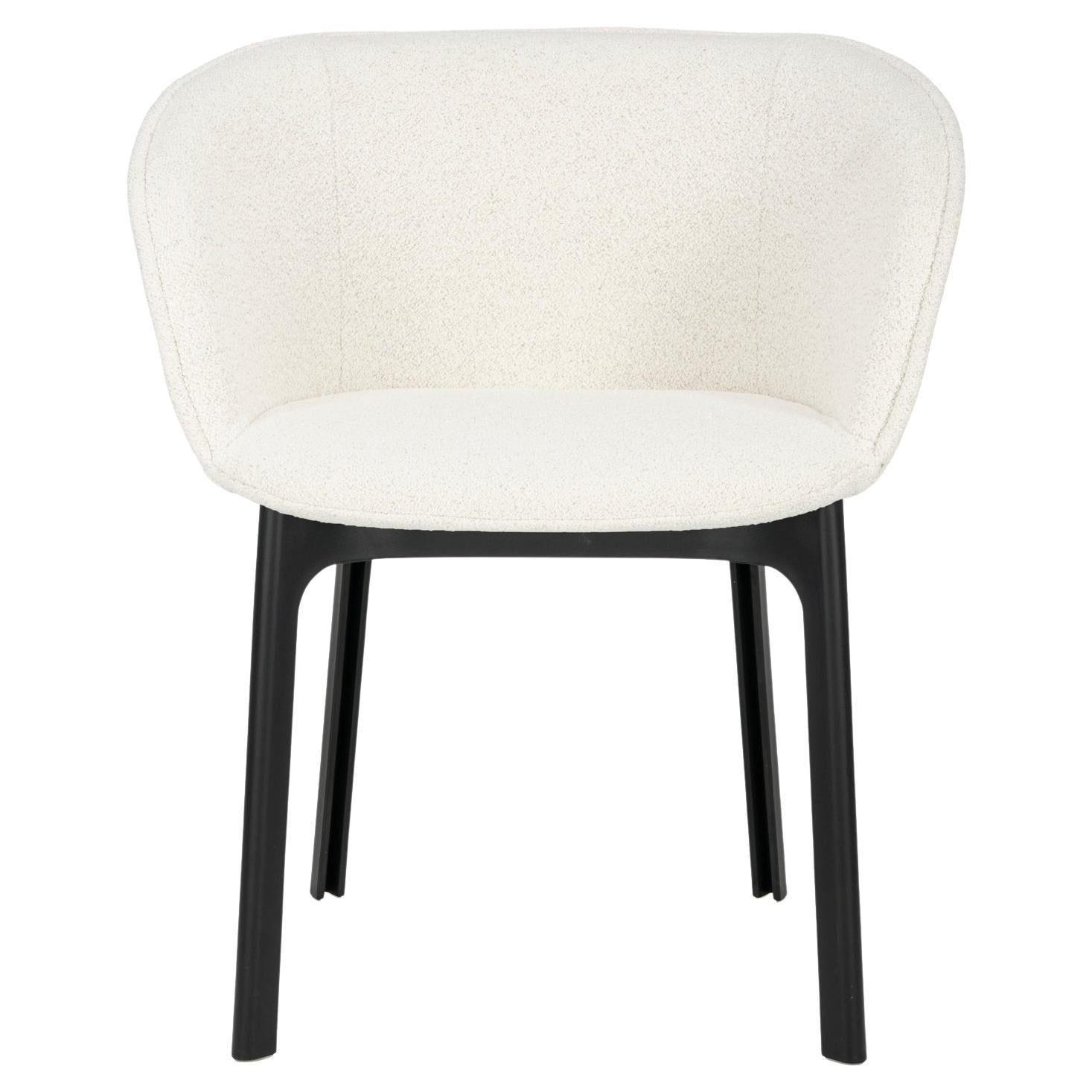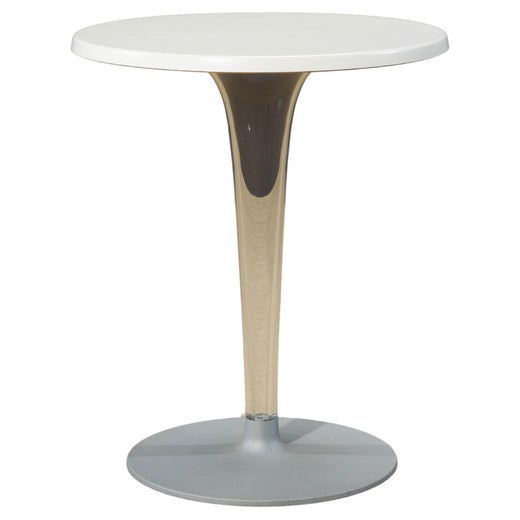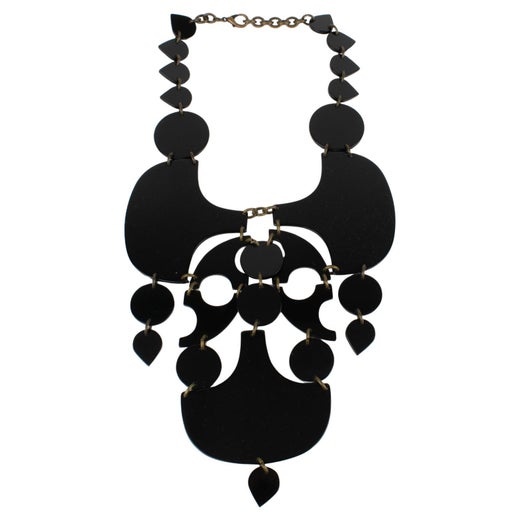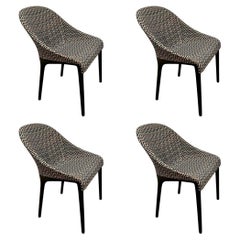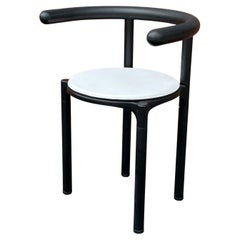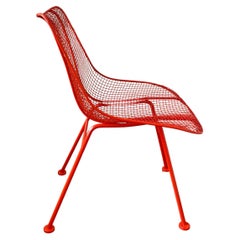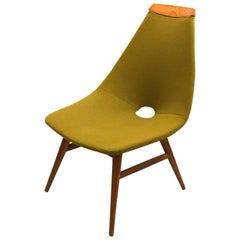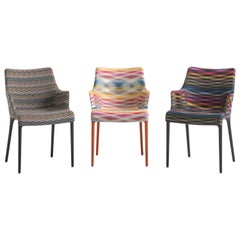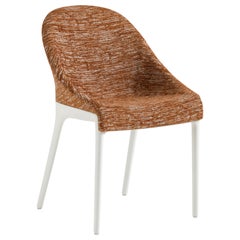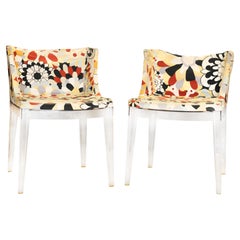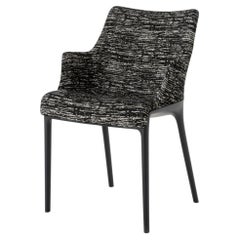Eleganza Ela Missoni Chair by Philippe Starck for Kartell
About the Item
- Creator:
- Dimensions:Height: 34.5 in (87.63 cm)Width: 21.5 in (54.61 cm)Depth: 21 in (53.34 cm)Seat Height: 19 in (48.26 cm)
- Style:Post-Modern (In the Style Of)
- Materials and Techniques:
- Place of Origin:
- Period:
- Date of Manufacture:2022
- Condition:
- Seller Location:San Diego, CA
- Reference Number:1stDibs: LU936646105822
Philippe Starck
A ubiquitous name in the world of contemporary architecture and design, Philippe Starck has created everything from hotel interiors and luxury yachts to toothbrushes and teakettles. Yet for every project in his diverse portfolio, Starck has maintained an instantly recognizable signature style: a look that is dynamic, sleek, fluid and witty.
The son of an aircraft engineer, Starck studied interior design at the École Nissim de Camondo in Paris. He started his design career in the 1970s decorating nightclubs in the city, and his reputation for spirited and original interiors earned him a commission in 1983 from French president François Mitterrand to design the private apartments of the Élysée Palace. Starck made his name internationally in 1988 with his design for the interiors of the Royalton Hotel in New York, a strikingly novel environment featuring jewel-toned carpeting and upholstery and furnishings with organically shaped cast-aluminum frames. He followed that up in 1990 with an equally impressive redesign of the Paramount Hotel in Manhattan, a project that featured over-scaled furniture as well as headboards that mimicked Old Masters paintings.
Like their designer, furniture pieces by Starck seem to enjoy attention. Designs such as the wedge-shaped J Series club chair; the sweeping molded-mahogany Costes chair; the provocative Ara table lamp; or the sinuous WW stool never fail to raise eyebrows. Other Starck pieces make winking postmodern references to historical designs. His polycarbonate Louis Ghost armchair puts a new twist on Louis XVI furniture; his Out-In chair offers a futuristic take on the classic English high-back chair. But for all his flair, Starck maintains a populist vision of design. While one of his limited-edition Prince de Fribourg et Treyer armchairs might be priced at $7,000, a plastic Starck chair for the Italian firm Kartell is available for around $250. As you will see on 1stDibs, Philippe Starck’s furniture makes a bold statement — and it can add a welcome bit of humor to even the most traditional decor.
Missoni
In 1953, Ottavio “Tai” Missoni (1921–2013) and Rosita Missoni (b. 1931) opened a small knitwear shop in Gallarate, Italy, paving the way for what would become an iconic style of colorful chevron knit.
Missoni began with a tracksuit, which featured zippers down the legs because, as Rosita recalls it, “Tai was too lazy to take off his shoes when putting them on.” The couple’s fashion really took off, though, once they discovered the Raschel knitting machine on a trip to a shawl factory. The machine enabled the Missonis to knit multiple colors in a zigzag pattern, a motif that would go on to become synonymous with the Missoni brand across everything from its alluring vintage day dresses and sweaters to its purses, seating and rugs.
Missoni held its first fashion show in Florence in 1967 and caused a bit of a sensation when the models’ Lurex dresses proved translucent under the lights at the Pitti Palace. Scandal aside, the show went down in history as a hit, and the Missonis soon made their debut in the United States with the help of legendary fashion editor Diana Vreeland, who gave the variegated Missoni stripe the Vogue seal of approval, saying, “Who says a rainbow has seven colors? It has many shades.” (It was also Vreeland who reportedly introduced the Missonis to Neiman Marcus president Stanley Marcus, effectively shepherding the brand to the American market.)
Missoni’s many-shaded rainbow would soon become an emblem of the 1970s fashion scene, earning the brand a permanent place in the fashion canon. In 1973, the New York Times proclaimed: “Missoni’s weaved garments have ended up universal materialistic trifles, as Vuitton sacks and Gucci shoes.”
The brand branched into the home market in 1983, with Rosita overseeing this new venture, Missoni Home, which included furniture, textiles and accessories. Daughter Angela succeeded her mother at the helm of the brand, where she served as creative director until 2021 and is currently president; her brother Luca is CEO, while her daughter Margherita was creative director of M Missoni, a modestly priced offshoot that was discontinued in 2021.
Find vintage Missoni clothing and accessories today on 1stDibs.
- ShippingRetrieving quote...Shipping from: San Diego, CA
- Return Policy
More From This Seller
View All21st Century and Contemporary Italian Post-Modern Dining Room Chairs
Fabric, Plastic
Late 20th Century Italian Post-Modern Armchairs
Metal
20th Century North American Mid-Century Modern Chairs
Iron
20th Century American Scandinavian Modern Corner Chairs
Upholstery, Wood
Late 20th Century Spanish Post-Modern Chairs
Metal
20th Century Italian Mid-Century Modern Chairs
Walnut, Fabric
You May Also Like
21st Century and Contemporary Italian Modern Dining Room Chairs
Fabric, Plastic
21st Century and Contemporary Italian Modern Dining Room Chairs
Fabric, Plastic
21st Century and Contemporary Italian Mid-Century Modern Chairs
Lucite
21st Century and Contemporary Italian Modern Dining Room Chairs
Fabric, Plastic
21st Century and Contemporary Italian Modern Dining Room Chairs
Fabric, Plastic
Vintage 1960s American Mid-Century Modern Chairs
Fabric, Walnut
